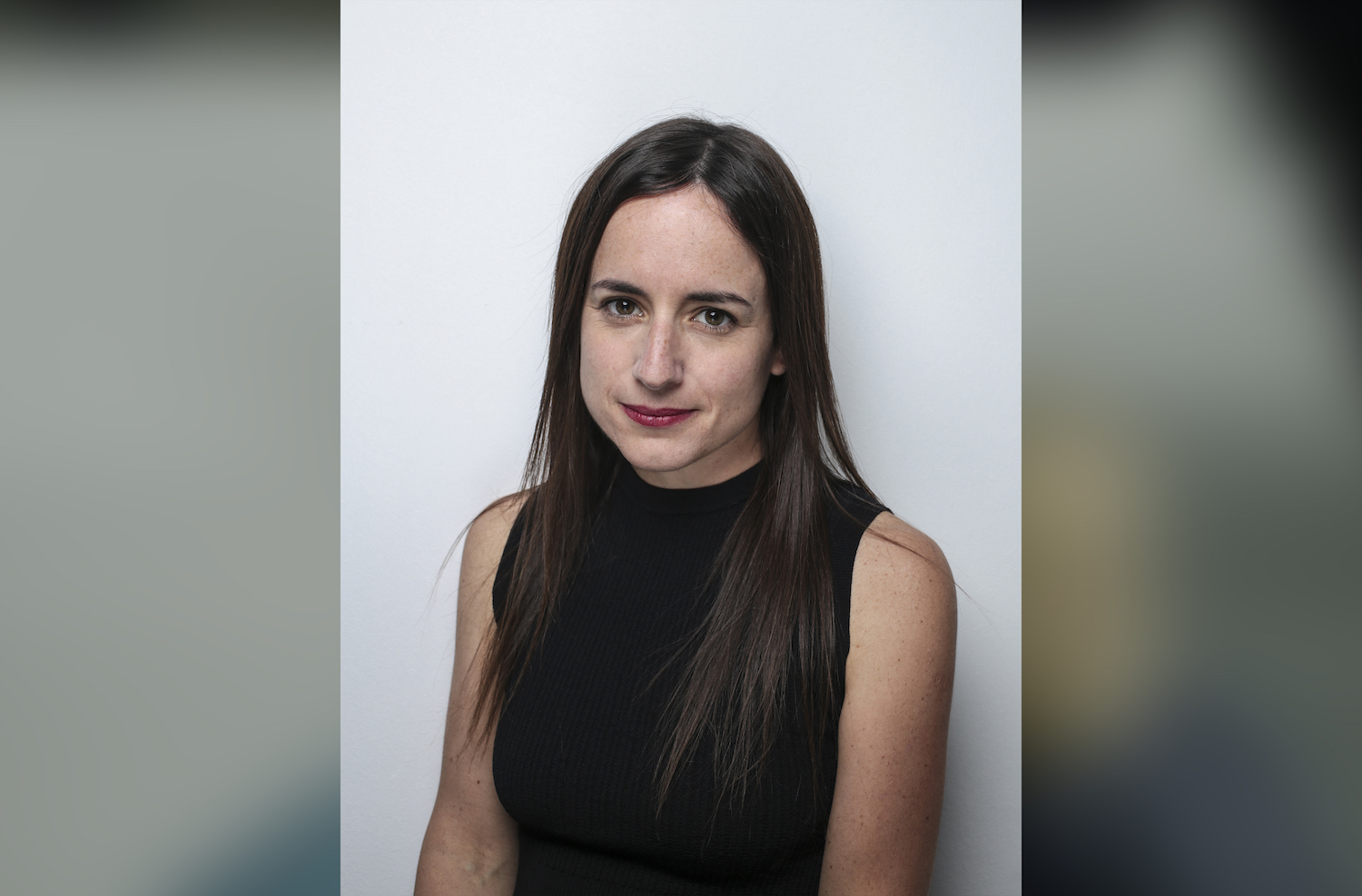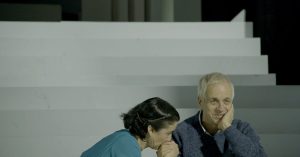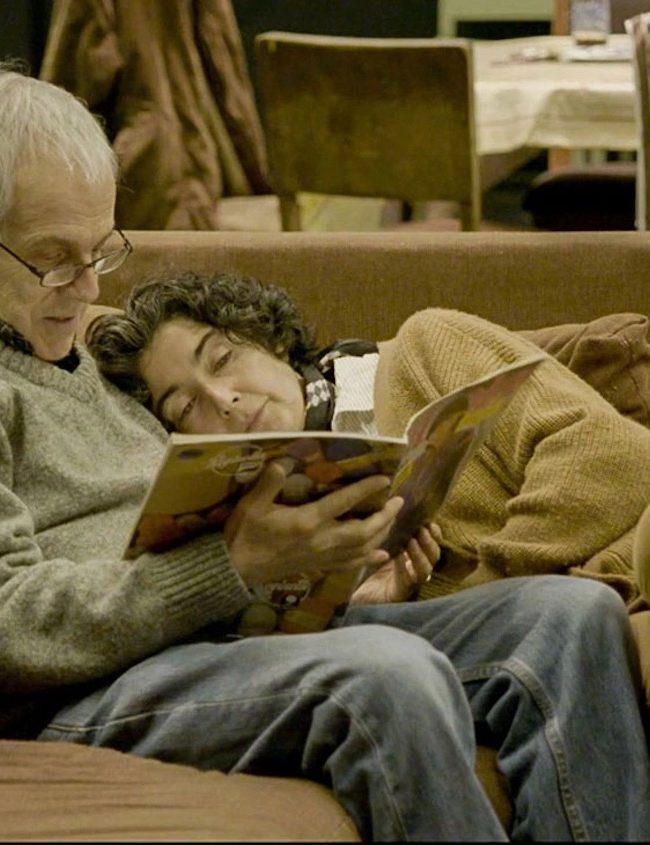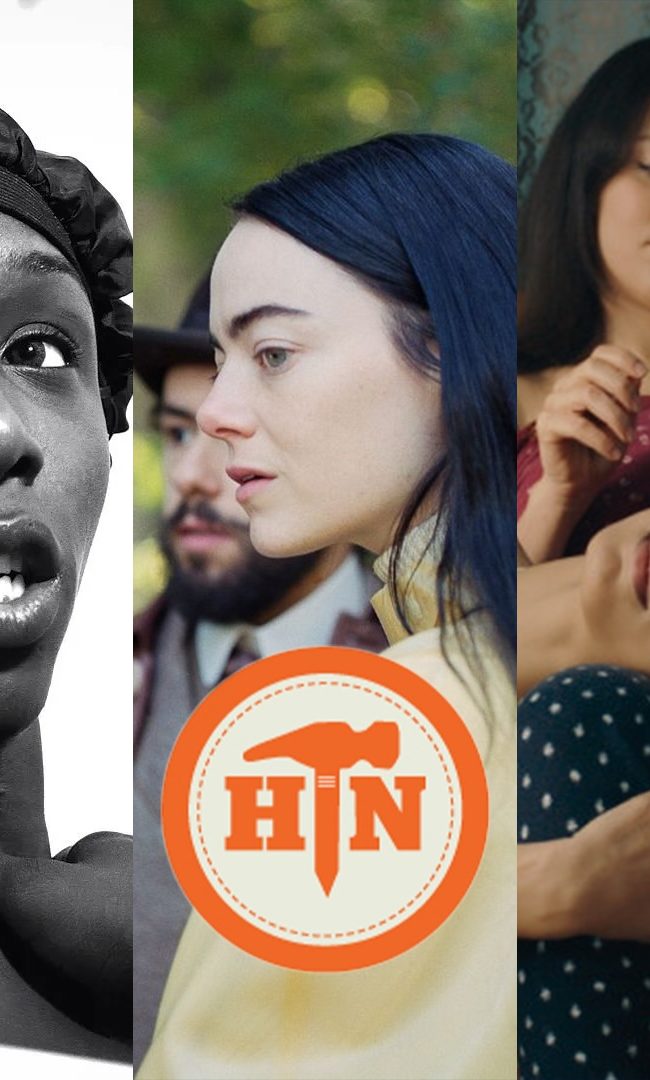A Conversation with Maite Alberdi (THE ETERNAL MEMORY)

Chilean director Maite Alberdi (The Mole Agent) premiered her latest documentary, The Eternal Memory (which I just reviewed), at Sundance 2023, where it won the Grand Jury Prize for World Cinema Documentary, and since then it has made its way through the festival circuit. Until now, that is, when the film finally begins its gradually expanding release in U.S. theaters. The movie explores the relationship between longtime couple Paulina Urrutia and Augusto Góngora, the latter of whom now suffers from Alzheimer’s. As his condition deteriorates, Urrutia steps up more and more, integrating her partner into as many daily activities as possible. Poignant and heartbreaking in equal measure, The Eternal Memory meditates on love, identity and yes, memory. I recently had an opportunity to speak with Alberdi by Zoom, and now here is that interview, edited for length and clarity. Please note that though Alberdi speaks excellent English, there may be times when I have adjusted her language to better fit American idioms.
Hammer to Nail: What draws you specifically to the nonfiction format?
Maite Alberdi: For me, reality is so unbelievable and powerful, so why would I construct characters if the characters that I could imagine already exist in society? The talent is to find them.
HtN: Of course, you still have to construct the story in the editing, nonetheless.
MA: Yes, but I don’t have to construct the reality or the narrative.
HtN: But certainly The Mole Agent had some very clever techniques drawn from fiction filmmaking.
MA: Completely.
HtN: And I really enjoyed that film.
MA: Thank you!
HtN: I’ve only seen two of your films, that one and this one, but both of them deal with aging and older adults. Is there something that attracts you to a subject like this?
MA: More than aging, I think it’s fragility, in all my films, and how people are isolated. But as I make observational documentaries and never do interviews, I think what you really see are concrete changes, or complete transformations, or complete conflicts, and I can follow that and have a story. In another stage of life, it might not be so visible. I think this age is very rich for observational stories. In fiction—in screenwriting classes at the university—everyone talks about the “hero’s journey,” and how the character changes, but in reality, people don’t change. I never see that. When we see transformation, it comes from the surrounding context, but not internally, and that kind of transformation tends to happen more in the later stages of life.
HtN: Well, I don’t know about you, but my own life is most definitely a hero’s journey …
MA laughs
HtN: Speaking of observational documentaries, one of my favorite documentaries of the last five years—beyond yours, of course—is a film that you produced, Los Reyes.
MA: Really? That’s great!
HtN: Yes. I love that film.
MA: I’m so happy that you saw it!
HtN: And I also interviewed the directors, Iván Osnovikoff and Bettina Perut, and they sent me a photo of the dog they adopted from the park.
MA: Yes, she now lives in the house. (laughs)
HtN: Yes, I was very glad to hear that. Could you tell me how you became involved with that film?
MA: Well, I have admired Iván and Bettina as directors for many years. When I was a student, they were the kind of documentary filmmakers that blew my mind. And we have a close relationship where we discuss cinema. They are friends. When they came to me with this project, it was a creative collaboration and I wanted to be involved with the film and with them because I like the cinema that they create.
HtN: Are you a dog person?
MA: Not especially. Not like them! (laughs)
HtN: Or like me! (laughs) I love dogs, which is why I love the film. So, I know that both Paulina and Augusto are well-known in Chile—they’re public figures—but what was the catalyst for making you want to tell this story? You started in 2018, correct?
MA: Yes.
HtN: What made you want to film this story at this point in their lives?
MA: It was not because they were public figures, by any means. Indeed, I didn’t want to say that in the beginning. I connected with them because I was hired to teach a class in a university where Paulina worked, and I saw them in a situation where she was working and he was accompanying her, and all the people who were working with her integrated him into what they were doing. You could clearly see that he was in the beginning of Alzheimer’s, which he openly discussed in the media.
In all my previous films, you see people with various mental problems or dementia, who are completely isolated from society, but in this case, I saw a society welcoming this guy because of how she decided to bring him with her. And so that was my approach: I wanted to show this love story. And then, doing the film, after a year, I realized that their background was important to understand the relationship and their love, who they are, and how that is important to the notion of historical memories. But at the start, I was mostly just engaged with this idea of a different way to take care of people with dementia.
HtN: How much of the film is from your camera and how much is from Paulina filming?
MA: I think it’s half and half. I shot for a few years, first, then Paulina shot for a year and a half, and then I shot for one more year. The lockdown in Chile was very long—2 years—so that’s why I sent a camera to Paulina, not expecting to have material for the film; it was more for research. I thought that when I would be back in that house, I would know where they were in that process. I told her how to use the camera but she never really learned, so everything is out of focus. I didn’t really give direction, just said, “Shoot whatever you want.” I just wanted to be there, in a way. So, it was a kind of a diary that we had, a form of communication. And it was only at the end that I understood that this material could actually be in the film.
HtN: Those moments obviously feel even more intimate than the other moments.
MA: Completely.
HtN: Their inclusion in the film is, I think, very important.
MA: It’s funny, because as a filmmaker I am always concerned about getting the perfect shot, and you can see, later, that I am trying to work in references to film noir. (laughs) And in this case, I received material that was completely out of focus, completely dark, yet that intimacy is more powerful than all of my own material. (laughs) Because only without me there can they have that intimacy. It was a lesson for me to understand that level of intimacy, and it’s a gift.
HtN: I had a film-school professor who always liked to talk about the “life in front of the camera” as being the most important thing. It didn’t matter how beautifully you constructed your shot, if there was no life in front of the camera, it would just be a pretty nothing. And so I take your point. It’s very important.
MA: Yes.
HtN: I’m curious to know how you navigated the ethics of what to show, since it’s not as if Augusto can give informed consent, after a while. He has Alzheimer’s. So how did you decide what was appropriate to show of him as the film went on.

A still form ETERNAL MEMORY
MA: I think it’s difficult to make an abstract speech about ethics, because each film that I make has different challenges related to ethics. And in this case, for me, the main question from the beginning was not what are the limits of what I can shoot, because those limits were openly constructed between the three of us, all the time—like “what do you feel comfortable shooting, and what not”—but more of, “Until when? When will I finish this film?” 6 years ago, I said, “I want to be with you until the end.” But the end is really abstract. What was the end?
I feel that it’s important to have the concern and to have the question because you feel it in the moment that it happens. And for me it was so clear because the end of the film is not when he passed away—he passed away 2 months ago, after we premiered the film—but the end for me was the day when we were shooting and he said, “I’m not, anymore.” It’s one of the last scenes in the film. And Paulina said to him, “You are.” And he said, “I’m not.” And he was saying, in a way, “I am not the person that I recognize, I am not the person that I want to be.” That was the first day in 5 years that I felt uncomfortable shooting, and I said to Paulina, “I don’t want to continue. I don’t want to be here anymore.” And for her it was also super clear, because she felt that we were putting him in front of the camera in a moment where he was saying, “I don’t want this.”
So that was our end, though our relationship continued. If I had wanted, I could have continued shooting for one more year, but it was very clear that I should not. When you are connected with the subjects, you really understand the limits, just like you would in regular relationships with people in your life.
HtN: I’m a film professor, and so are you. You work as the Audiovisual Director of the Pontifical Catholic University of Chile, and also teach, right? How do you balance those responsibilities with your life as a documentarian?
MA: I taught for 13 years, but now I’m not teaching, because of the pandemic, since the shutdown in Chile was so long. After one semester of teaching by Zoom, which was also kind of like therapy, too, with everyone speaking about themselves, and making documentaries about themselves, I felt like I could not continue to teach filmmaking that way. But, for me, teaching is very important, as a filmmaker, because it’s a creative exercise. I see the students’ work all the time and check them and correct them, and that exercise to see what they can improve is something that teaches me how to improve, as well. Even if I am not making something, myself, I am thinking about it. So, leading documentary workshops at a university is the best kind of school for me.
HtN: Indeed. It’s a very beneficial feedback loop.
MA: Completely! Because you don’t have the opportunity to experiment, daily, all that much. And it’s a way to experiment with ideas.
HtN: Well, Maite, I want to thank you very much for making this film and for talking to me, and also for making The Mole Agent and, of course, for your work on Los Reyes.
MA: Thank you! I’m really glad that you liked it.
– Christopher Llewellyn Reed (@ChrisReedFilm)
MTV Documentary Films; Maite Alberdi; The Eternal Memory documentary movie review











